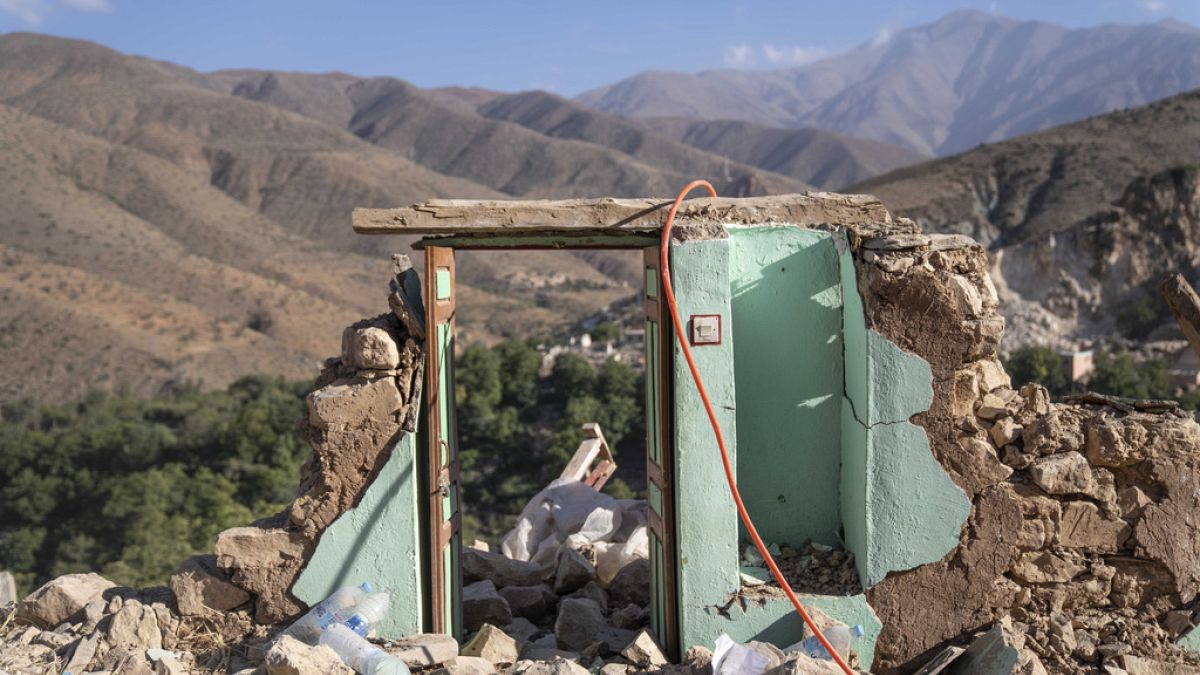A mountainous village in Morrocco felt more tremors on Wednesday following last week's earthquake that rocked the country.
Dramatic video footage captured rescue workers, villagers and journalists being forced to run to safety at the moment an aftershock is felt in the village of Imi N'Tala, near the epicentre of the earthquake that struck Morocco last week.
During the aftershock, a rock fell in the High Atlas Mountains area, resulting in one person sustaining minor injuries.
Morocco is deep in mourning, with the most recent toll on Tuesday recording at least 2,901 killed and 5,530 injured in the 6.8-magnitude quake that struck late Friday.
Rescue teams were in the region to step up efforts in devastated villages as chances fade of finding survivors.
Vehicles packed with supplies were inching up winding mountain roads to deliver desperately needed food and tents to survivors. The earthquake is the nation's strongest quake on record and deadliest in over six decades.
Search teams were still scouring the rubble for the living. Morocco is now well past the 72-hour window when rescues are considered most likely, yet survivors are in some cases found well beyond that period.
Hard-hit mountain villages
Residents in the remote High Atlas Mountains traditionally live in traditional adobe homes. The quake's shocks however have turned them to rubble and dust
Many Moroccan citizens have rushed to help quake victims with food, water, blankets and other aid or by donating blood to help treat the injured, an effort joined by the national football team.
In the tourist hub of Marrakesh, whose UNESCO-listed historic centre suffered cracks and other damage, many families still slept out in the open for a fifth night, huddled in blankets on public squares for fear of aftershocks.
The challenge of rebuilding
Morocco has allowed rescue teams to come to its aid from Spain, Britain, Qatar and the United Arab Emirates but so far declined offers from several other nations, including the United States, France and some Middle Eastern countries.
The quake was Morocco's deadliest since a 1960 earthquake destroyed Agadir on the Atlantic coast, killing between 12,000 and 15,000 people.
The United Nations estimates that more than 300,000 people have been affected, one-third being children.
The rebuilding effort is expected to be enormous for the North African country which was already suffering economic woes and years of drought and now fears a downturn in the crucial tourism sector.
